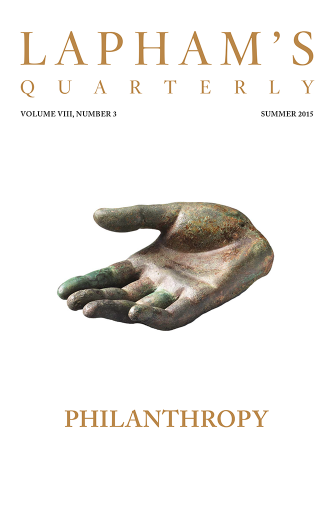
Jeremy Bentham
From A Table of the Springs of Action. Published twenty-eight years after his Principles of Morals and Legislation, this tract includes several tables illustrating his philosophy of utilitarianism, in which the morality of human actions are judged by the pleasure or pain they produce. “Through an exaggerated zeal for utility,” wrote Johann Wolfgang von Goethe, Bentham “overstepped the limits of his own doctrine, and thus became a radical both in politics and in religion.” Karl Marx referred to Bentham as “a genius of bourgeois stupidity.”
